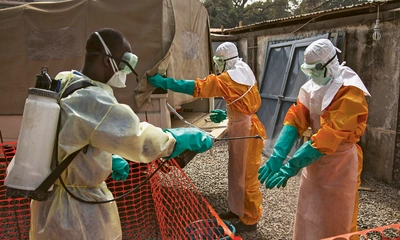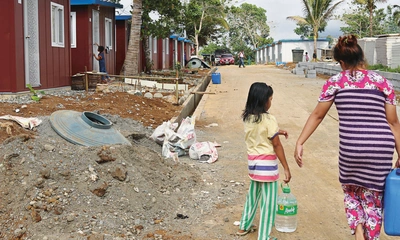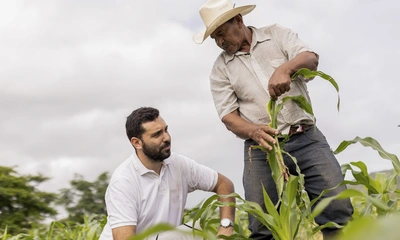Why Is the Demand for Organic/Bio-Products Increasing in Burkina Faso?
Agricultural production in the Sahel countries is becoming increasingly difficult, due to the increasing fragility of the region. Traditional farming methods are no longer able to meet the increasing demand. To address these challenges, Unité's member organisation E-CHANGER in Burkina Faso supports CNABio in promoting organic and agroecological farming practices.
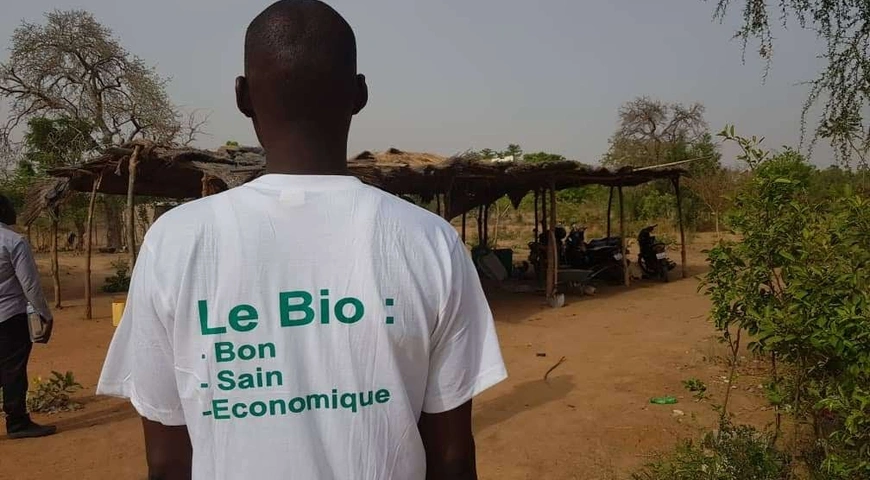
E-CHANGER's Personnel Development Co-operation specialises in capacity building and collaboration with partner organisations in countries of the South. Since 2002, the member organisation of the umbrella organisation Unité has been active in Burkina Faso, a country whose security situation has steadily deteriorated in recent years, and which today scores 85.9 out of 120 on the Fragile State Index.The equally unstable situation in neighbouring Mali, Chad and Niger, an increasing number of internally displaced persons due to inter-ethnic conflicts and terrorist activities by fundamentalist armed groups, growing demographic pressure on resources, and weak state structures all contribute to the instability of the West African country. Increasing poverty and the consequences of climate change are further factors increasing Burkina Faso's fragility.
Establishment of a National Market for Organic Products
In addition to climate change, the extensive use of genetically modified seeds in Burkina Faso has led to a deterioration of environmental conditions, the gradual disappearance of traditional varieties of seeds and, accordingly, the dependence of farmers on new seeds. In 2011, the Conseil National de l'Agriculture Biologique (CNABio) was founded to counteract this development, which is harmful to people and the environment. Its aim is to promote organic agriculture, to build up a national market for organic products and to connect the various players with each other as well as with consumers. These activities help improve the income of smallholder farmers while conserving natural resources. Agroecology promoted by CNABio reduces water pollution, increases soil fertility, and produces chemical- and toxin-free food.
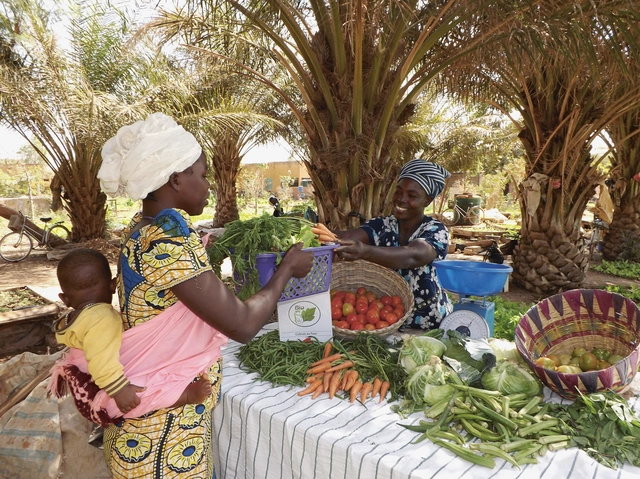
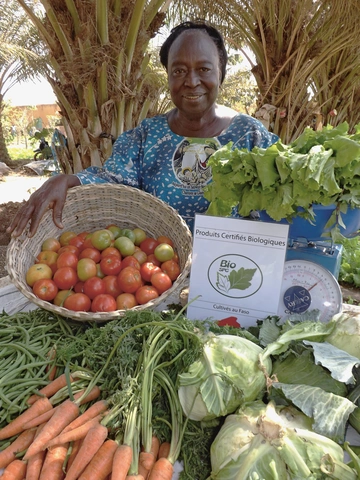
Although CNABio is only 10 years old, it has already achieved a great deal. The umbrella organisation now has nearly 80 members, all of whom are committed to promoting agroecology and organic agriculture. It offers training to strengthen the capacities of its members and lobbies the authorities. Thanks to CNABio, an agroecology focal point has been established in the Ministry of Agriculture of Burkina Faso, and the government is in the process of drafting a national development strategy to promote agroecology. In addition, many agricultural training institutions have incorporated or are in the process of incorporating agroecological farming practices into their curricula. Clémence Samba/Lankouandé, coordinator of CNABio, is particularly pleased: "When we started our work 10 years ago, organic and agroecological farming methods were hardly known among the Burkinabe population. Today, the demand for organic and agroecological products is high, even at the national level, because consumers are aware of the benefits of a healthy diet and sustainable production.
The First Burkinabe Bio Label
Probably the most important achievement of CNABio is the development and operationalisation of the BioSPG label, which certifies the organic quality of agroecological products by certified producers. It is the first national standard for organic agriculture and one of the first organic labels in West Africa. The standard requires that agriculture has to be as resource-conserving as possible, by following the principles of crop rotation and using only organic fertilisers; synthetic pesticides or chemical fertilisers are prohibited, as are genetically modified varieties. In recent years, many new producers have been recruited for the BioSPG label, also thanks to the support of René Emmenegger, who provided expert assistance with E-CHANGER between 2017 and 2020. Today, 410 producers at 36 locations are certified, which corresponds to an area of over 80 hectares.
Cheik Bambara is a graduate engineer for rural development and specialises in supporting farmers' organisations. He continues Emmenegger's work: "I have been working at CNABio since 2020 to promote and improve the BioSPG label and support the certified producers in marketing their products. A large number of our farmers have been able to significantly increase their production and the label gives them a market advantage. It's nice to see that my work is helping to improve food sovereignty and farmers' incomes.
Still, CNABio does not want to rest on its previous achievements. It aims to expand its activities to other parts of the country and to convince as many farmers and consumers as possible of the added value of the BioSPG label. Burkina Faso still has a long way to go before it can say goodbye to pesticides and chemical fertilisers. However, agroecological farming methods help to strengthen the resilience of the Burkinabe population on an economic and ecological level, so that they can better cope with the increasing fragility and have more perspectives again.
E-CHANGER's program in Burkina Faso is co-financed by the Swiss Development Cooperation (SDC), within the framework of the institutional program of Unité.
➡ More information about the CNABio is available on its >> website.
Text: Sara Ryser, translated by SDC
This translation was made by SDC's Agriculture & Food Security Network and has originally been published in their >> July Newsletter.

